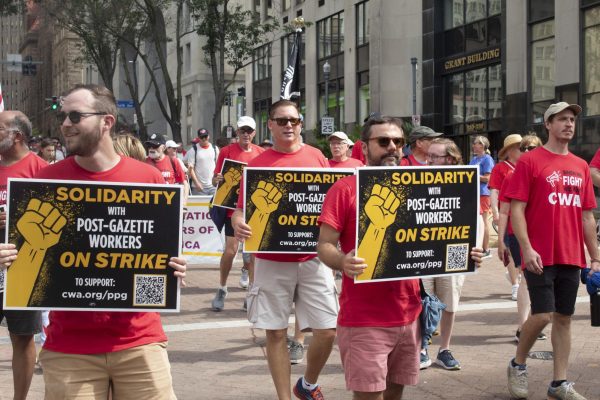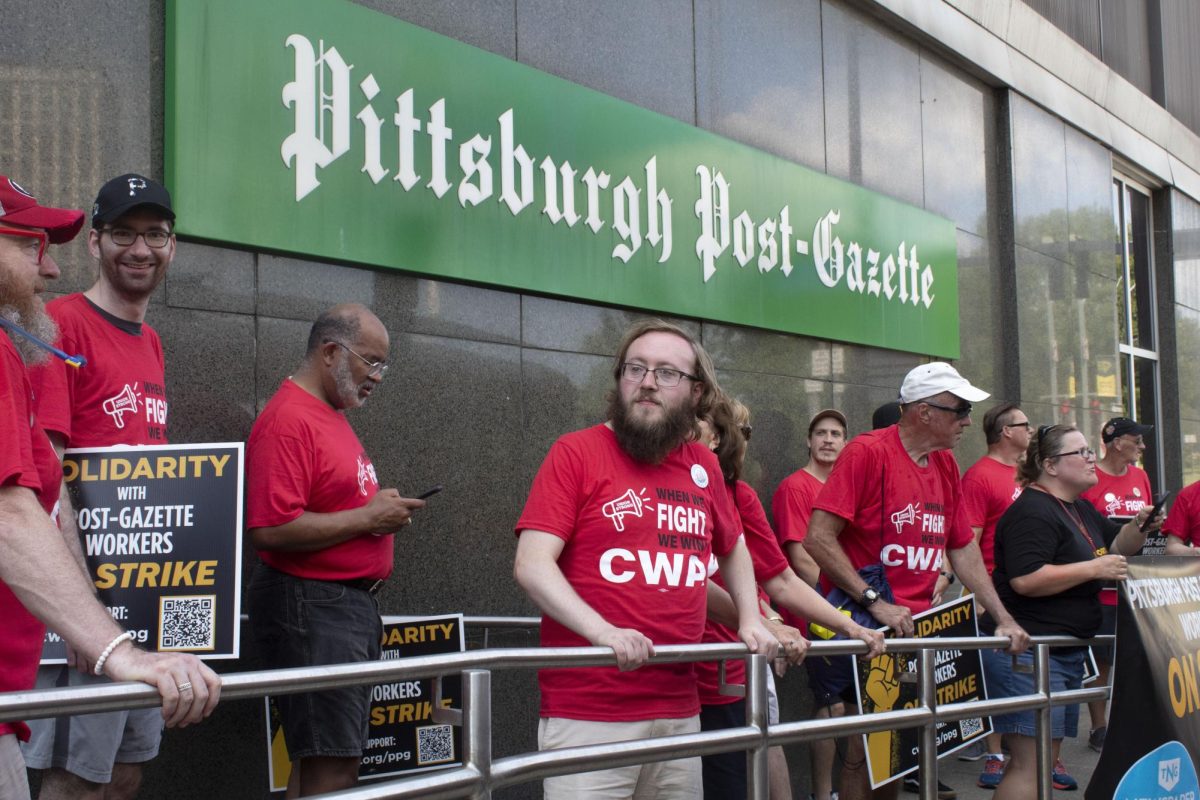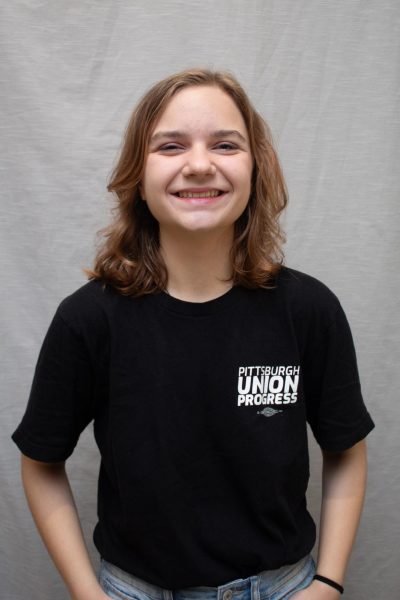The future of journalism at one of Pittsburgh’s largest news outlets is in danger, and our University is part of the problem. Last October, staff at the Pittsburgh Post-Gazette went on strike to protest, among other things, outrageously low wages and a lack of health insurance. The reporters formed the Pittsburgh Union Progress, a news outlet where their work could be published during the strike.
This summer, I interned with the Pittsburgh Jewish Chronicle and was put on a cross-publication team to cover the Pittsburgh synagogue shooting trial alongside Union Progress reporters as an alternative to reading the Post-Gazette. Striking reporters have asked readers to halt subscriptions and boycott the Post-Gazette.
I was in the district courthouse speaking with a Union Progress reporter — just a table away from scabs who were undermining everything striking reporters are fighting for — when I got the email. Chatham University’s Office of Career Development was advertising a Post-Gazette hiring fair featuring local employers and journalism positions at the struck paper. I was halfway through a sentence about the future of journalism.
The humor of the situation might have hit me if Career Development were not encouraging students to take the jobs that reporters left because of unethically low pay. Maybe it would have been funny if an intern I once worked with hadn’t texted me to tell me she accepted an internship with the Post-Gazette this summer.
Maybe it would have been funny to say that my University crossed the picket line to advertise a hiring fair the same summer I had to tell multiple people that, yes, the Post-Gazette is still on strike and, yes, you still shouldn’t read it.
Maybe it would have been funny if it didn’t keep happening.
While striking workers encouraged readers to boycott the Post-Gazette, the Jennie King Mellon Library renewed its yearly subscription, allowing students, staff and faculty to access articles written by scabbing reporters, including one headlined “Post-Gazette counters striking unions’ health insurance proposal.”
And after promoting the first hiring fair in June, Chatham promoted a second fair in August.

But the biggest offense of all was Chatham allowing a scabbing Post-Gazette photojournalist onto the Shadyside campus to cover move-in day and advertised the story in an email newsletter.
It’s bad enough to share a room in the courthouse with scabbing reporters over the summer, but to have one come onto our campus and provide content for a paper that can’t even be bothered to pay its employees fair wages is a spit in the face.
This could have been the perfect opportunity for Chatham to educate Chatham students about the ramifications of crossing the picket line and how to ensure their work is appropriately treated, valued and compensated. Instead, Chatham risked the future livelihoods of students by encouraging them to cross the picket line and potentially get blacklisted from other publications who refuse to hire scabs.
The Post-Gazette used to be the paper I fantasized about working for. Just a few years ago, a team of reporters from the Post-Gazette won a Pulitzer Prize for covering the Pittsburgh synagogue shooting. In a photo on the Pulitzer’s website, Alexandra Wimley and Andrew Goldstein proudly posed with the award their team had won.
Both of them are on strike now.
This strike will determine how journalists are treated for decades to come. I spent my summer beside the Union Progress and Jewish Chronicle on grueling eight-hour days covering a trial so horrific that my editor sent me resources for counseling when I turned in my first story. The Pittsburgh Union Progress reporters did it unpaid.
If being a talented journalist is not enough to secure a living wage, then the future of journalism is grim. I still want to be a part of it.
These reporters have given up the safety of their jobs to ensure that journalism’s future — my future — is secure. Every single day, they fight to make sure that journalists are compensated for the work that is shaping the world. Our University should fight for that, too.



